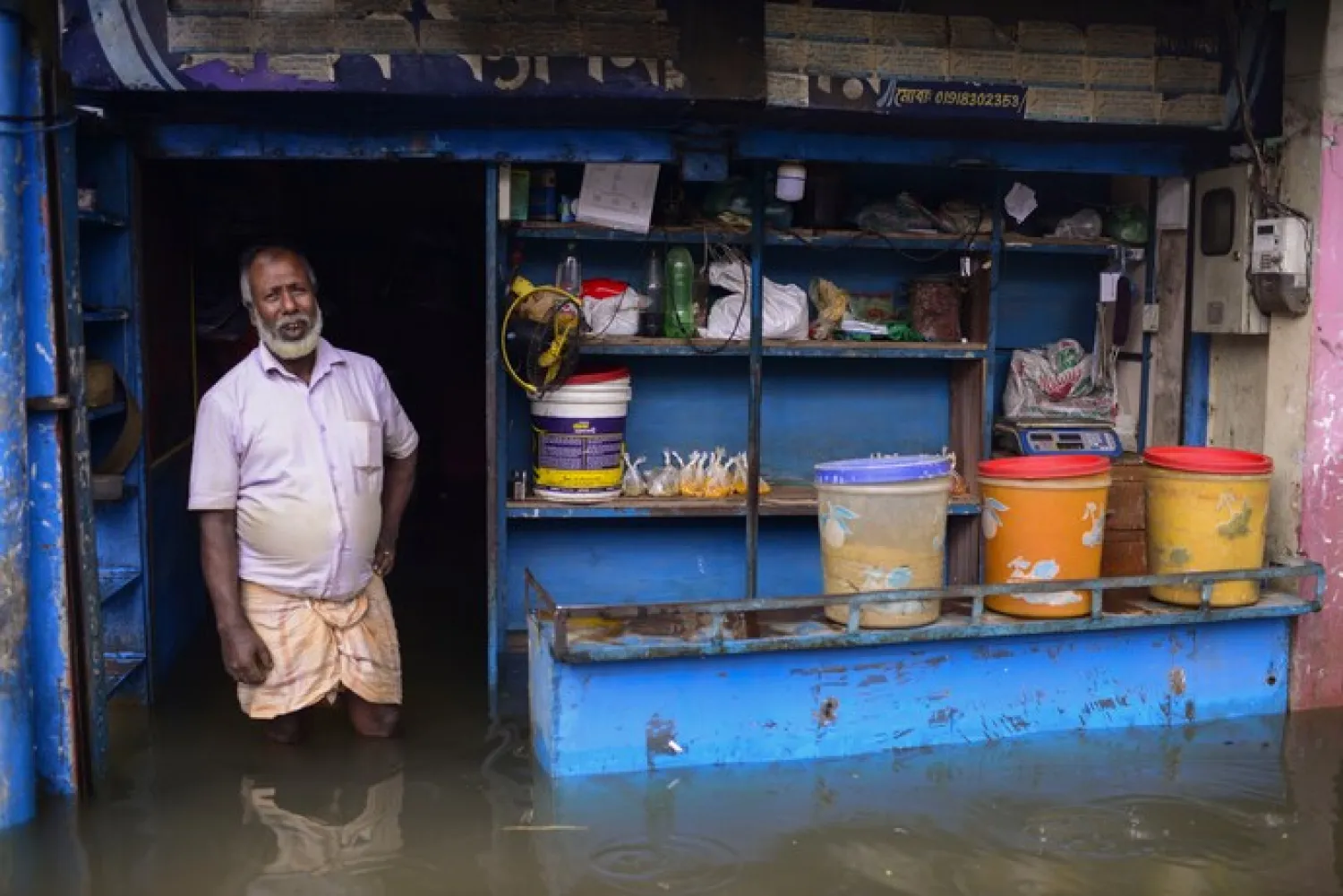Floods in South Asia wreaking havoc Monday hindered authorities' efforts to deliver food and drinking water to shelters across Assam in northeastern India and north and northeastern regions of Bangladesh.
More than a dozen people died across Bangladesh since the monsoon began last week, authorities said. The government called in soldiers Friday to help evacuate people, and Ekattor TV station said millions remained without electricity.
Enamur Rahman, junior minister for disaster and relief, said that up to 100,000 people have been evacuated in the worst-hit Sunamganj and Sylhet districts, and about 4 million people have been marooned in the area, the United News of Bangladesh agency said.
Flooding also continued to ravage India’s northeastern Assam where two policemen engaged in rescue operations were washed away by floodwaters Sunday, an official at the police control room in the state capital Gauhati said.
Chief Minister Himanta Biswa Sarma said Monday his administration was in the process of airlifting food and fuel by military helicopters to some parts of the state that were badly affected, The Associated Press reported.
Officials said nearly 200,000 people were taking shelter in 700 relief camps. Water levels in all major rivers across the state were flowing above danger levels.
Assam has been reeling from massive floods after heavy torrential rains over the past few weeks made the Brahmaputra River break its banks, leaving millions of homes underwater and severing transport links.
The Brahmaputra flows from China’s Tibet through India and into Bangladesh on a nearly 800-kilometer (500-mile) journey through Assam.
Major roads in Bangladesh have been submerged, leaving people stranded. In the country that has a history of climate change-induced disasters, many expressed their frustration that authorities haven't done more locally.
“There isn’t much to say about the situation. You can see the water with your own eyes. Water level inside the room has dropped a bit. It used to be up to my waist," said Muhit Ahmed, owner of a grocery shop in Sylhet.
“All in all, we are in a great disaster. Neither the Sylhet City Corporation nor anyone else came here to inquire about us," he said. "I am trying to save my belongings as much as I can. We don’t have the ability to do any more now."
In the latest statement Sunday from the country’s Flood Forecasting and Warning Center in the nation’s capital, Dhaka, said that flooding in the northeastern districts of Sunamganj and Sylhet could worsen further in next 24 hours. It said the Teesta, a major river in the northern Bangladesh, may flow above danger. The situation could also deteriorate in the country’s northern districts of Lalmonirhat, Kurigram, Nilphamari, Rangpur, Gaibandha, Bogra, Jamalpur and Sirajganj, it said.
Officials said water has started receding already from the northeastern region but is posing a threat to the country’s central region, the pathway for flood waters to reach the Bay of Bengal in the south.
Media reports said those affected by flooding in remote areas are struggling to access drinking water and food.
Arinjoy Dhar, a senior director of the nonprofit developmental organization BRAC, asked for help ensuring food for the flood-affected in a video posted online.
Dhar said they opened a center Monday to prepare food items as part of a plan to feed 5,000 families in Sunamganj district, but the arrangement was not enough.
BRAC said they alone were trying to reach out to about 52,000 families with emergency supplies.
The latest floods have devastated Bangladesh since Friday amid heavy monsoon rains, just as the country began recovering from a flash flood.
Last month, a pre-monsoon flash flood triggered by a rush of water from upstream in India’s northeastern states hit Bangladesh’s northern and northeastern regions, destroying crops and damaging homes and roads.
Bangladesh, a nation of 160 million people, is low-lying and faces threats from natural disasters such as floods and cyclones, made worse by climate change. According to the United Nations' Intergovernmental Panel on Climate Change, about 17% of people in Bangladesh would need to be relocated over the next decade or so if global warming persists at the present rate.









